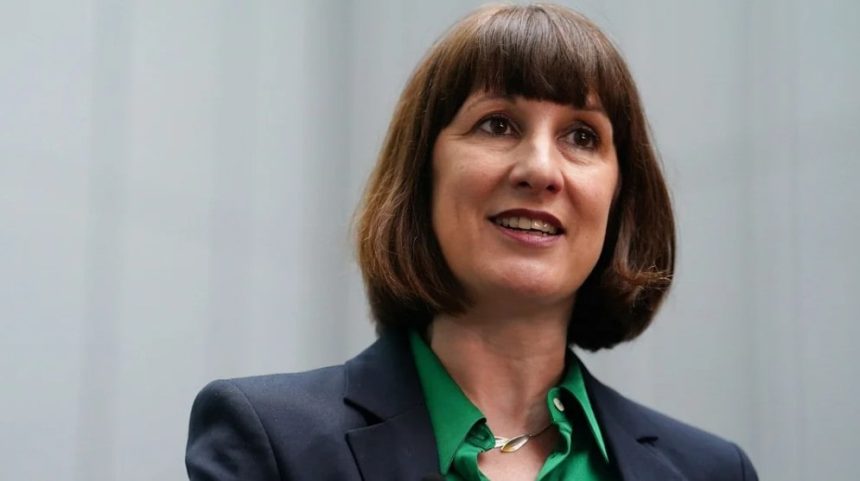Rachel Reeves is under mounting pressure to abandon Labour’s election promise not to raise income tax, national insurance or VAT, as a major think tank warns of an impending £30bn hole in the Autumn Budget.
Think Tank Suggests Rachel Reeves to Rethink Tax Promises
In a critical assessment, the Institute for Government (IfG) has called on the Chancellor to face economic reality and scrap what it brands as “rash” tax pledges. The IfG argues that Ms Reeves’ refusal to raise the three major taxes is forcing her into “piecemeal” measures that lack long-term vision.
“With tax rises all but inevitable, she should reject the path of least resistance, often taken by her predecessors, of raising taxes in an inconsistent way based on what seems easiest.
Instead, now is the time to commit to tax reform and lay out an agenda on tax that fits with her broader growth objectives,” said Tom Pope, deputy economist at IfG.
Forecasts Paint a Grim Picture
Inside Treasury circles, there’s growing concern. Insiders believe the Office for Budget Responsibility is preparing to downgrade productivity growth forecasts, potentially triggering the need for £20bn in extra tax hikes alone.
Add to that:
- £5bn to reverse welfare reform U-turns earlier this year.
- Another £5bn to cover unexpectedly high interest payments.
The numbers don’t lie. The £30bn gap could derail some of Labour’s policy ambitions, including scrapping the controversial two-child benefit cap despite calls from across the political spectrum.
As the Budget nears, Reeves must decide whether to honour Labour’s tax promises or pivot toward structural reform that could risk political fallout but offer long-term stability.
The IfG’s report, 2025 Budget and Beyond, pulls no punches. It warns that avoiding the big three taxes isn’t sustainable and urges Ms Reeves to resist the temptation of “eclectic” tax grabs that further complicate an already tangled system.
The think tank also sounded caution on wealth taxes, suggesting implementation would be fraught with difficulty, especially in a fragile economic environment.
Meanwhile, the Resolution Foundation has suggested a potential route forward—a 2p cut in national insurance coupled with a 2p rise in income tax. This, it argues, would generate £6bn while levelling the field between earners, landlords, and pensioners. It’s a technical shuffle, but one that could be politically palatable.
OECD Joins Chorus of Warnings
Adding to the pressure, the Organisation for Economic Co-operation and Development (OECD) has forecast a significant slowdown in UK economic growth. According to its latest outlook:
- Growth is expected to drop from 1.4% in 2025 to 1% by 2026.
- Britain is likely to endure the highest inflation rate among G7 nations.
- Fiscal tightening—higher taxes and lower public spending—is already weighing on performance.
The OECD also pointed to external risks, including trade tensions from the US, which could further exacerbate domestic economic challenges.
Treasury Remains Quiet
Despite growing concern, the Treasury remains tight-lipped. A spokesperson reaffirmed the government’s tax stance, stating: “We are protecting payslips for working people by keeping our promise to not raise the basic, higher, or additional rates of income tax, employee national insurance or VAT.
That’s the Plan for Change – protecting people’s incomes and putting money into people’s pockets.”
When asked if taxes might still rise, Chief Secretary to the Treasury, James Murray, didn’t rule it out. Speaking to ITV, he said, “I’m not going to write a Budget here,” pointing instead to the upcoming 26 November statement.
However, Housing Minister Matthew Pennycook doubled down on Labour’s manifesto promises, telling Times Radio: “We’re going to honour our commitments not to increase the rates of income tax, national insurance or VAT on the pay packets of working people.
We’re going to stick to those non-negotiable fiscal rules that have provided us the foundation for economic stability.”
Political Promise vs Economic Reality
As the Budget deadline looms, the chancellor is caught in a fiscal bind, stuck between political pledges and economic headwinds.
Analysts suggest that without bold moves or tax reform, patchwork fixes won’t be enough to stabilise the UK’s fragile fiscal outlook.
What’s clear? The economic storm is gathering. And unless Rachel Reeves adjusts her sails soon, the next Budget could be more turbulence than triumph.






